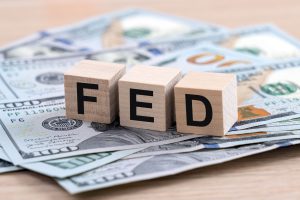What was expected to be a rebound year for the housing market is now teetering on uncertainty, as President Trump’s sweeping tariffs spark consumer jitters and investor pullbacks. The spring homebuying season — historically the busiest time for real estate — was set to benefit from stable mortgage rates, rising inventory, and renewed buyer interest. But instead, mounting fears over inflation, job security, and a looming recession are dampening both demand and seller confidence.
According to brokers and analysts, the sudden shift in sentiment has hit just as the market began to show signs of recovery. Mortgage applications were ticking up, and showings had climbed in early 2025. But the volatility in stock markets, triggered by tariff escalations on U.S. trading partners, has undercut momentum.
“Sellers are concerned about their home values,” said Jacob Barker, a New York-based broker at Coldwell Banker Warburg. “Buyers, even if they’re not personally in financial trouble, are hesitant to move when they think prices might fall.”
Fears of Falling Prices, Yet Rising Costs
Trump’s tariff strategy — aggressive levies followed by temporary delays — has injected deep uncertainty into markets, pushing the S&P 500 into correction territory with a 10% decline year-to-date. Meanwhile, mortgage rates have crept up to 6.83%, a 20-basis-point jump in recent weeks. The combination of higher borrowing costs and falling asset values is freezing activity.
This climate could mark the third consecutive year of underwhelming home sales. In 2024, just over 4 million previously owned homes were sold — the weakest tally since 1995. Hopes for a rebound in 2025 now hang in the balance.
Historically, home prices have remained resilient during equity market downturns, aside from the 2008 housing-led crisis. According to Morgan Stanley analysts, data spanning five decades shows home prices generally rise during and after market corrections. But sales volumes often dip sharply before rebounding — a trend that could play out again in 2025.
The concern now is timing. If stock market volatility persists into the summer, more buyers may delay decisions, and sellers may pull listings, reducing supply and stalling recovery.
Uncertainty Looms Over Buyers and Sellers
While some online commentators joke about waiting for a recession to “finally buy a house,” the current dynamics offer little clarity for opportunistic buyers. Wage growth is uneven, inflation remains a threat, and investment portfolios have taken a hit. For many Americans, the question isn’t whether prices will fall — it’s whether they’ll feel secure enough to act when they do.
Sellers, too, are entering a defensive mode. With home values at risk and transaction volumes low, some are opting to wait out the turbulence rather than accept lower offers. Others are quietly adjusting expectations, hoping to find buyers before broader price declines materialize.
If confidence does not return quickly, the spring and summer months — typically a critical window for moving families — may deliver far fewer deals than expected.
Looking Ahead: Market on Pause
The real estate market thrives on stability, and 2025 has delivered anything but. Even if tariffs are revised or delayed, the psychological impact may linger well into the second half of the year. Until economic signals stabilize — whether through eased trade tensions, lower rates, or stronger job numbers — buyers and sellers alike may choose to wait.







